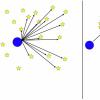Renew Life has a good rep for quality as a probiotic if you can get it from a vendor who's been storing it correctly. However, I read this recently. I would say that probiotics might be better if your diet isn't as high in fiber as it needs to be. You could be better off getting plenty of glutamine, FOS, fish oil and basic fibers from this smoothie, than wasting your money and time on lactobacillus probiotics. Source Naturals has big bottles of FOS and BulkSupplements makes the best quality glutamine, but if you're like me and drink chocolate muscle feast shakes before a workout, you'll probably get the same amount of glutamine from that. Glutamine builds the mucin lining that akkermansia feeds on.
The Biocollective got back to me saying my shipment arrived via FedEx way too late so they're sending me a new one. I hate pooping into a paper thingamajig again but, for the sake of knowledge I'll do it.
I also heard they've started charging members $140, not sure if this is true or what. Glad I got in on the ground floor when it was free.
Edited by Nate-2004, 11 August 2017 - 01:45 PM.
































































